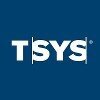Filter interviews by
XL India Business Services Senior Finance Associate Interview Questions, Process, and Tips
XL India Business Services Senior Finance Associate Interview Experiences
1 interview found

(5 Questions)
- Q1. What is deferred revenue expenditure and journal entry ?
- Ans.
Deferred revenue expenditure is an expense that is incurred in one accounting period but is recognized over a period of time.
Deferred revenue expenditure is an expense that benefits multiple accounting periods.
It is recorded as an asset on the balance sheet and amortized over the periods that benefit from it.
Journal entry for deferred revenue expenditure involves debiting the asset account and crediting the expense acc...
- Q2. What is prepayment ?
- Ans.
Prepayment is a payment made in advance before the actual due date.
Prepayment is a payment made before the scheduled due date of a financial obligation.
It is often made to reduce the total outstanding balance and save on interest costs.
Common examples include prepaying a mortgage, rent, or utility bills.
Prepayments can also be made towards loans or credit card balances.
- Q3. Do you know about IFRS 16 and 17?
- Ans.
IFRS 16 and 17 are accounting standards related to lease accounting and insurance contracts, respectively.
IFRS 16 deals with lease accounting and requires lessees to recognize assets and liabilities for all leases with a term of more than 12 months.
IFRS 17 focuses on insurance contracts and aims to provide more transparent and useful information about an insurer's financial position and performance.
Both standards have ...
- Q4. What do you understand by amortization?
- Ans.
Amortization is the process of spreading out the cost of an intangible asset over its useful life.
Amortization is a method used to allocate the cost of intangible assets over time.
It is similar to depreciation for tangible assets, but applies to intangible assets like patents, copyrights, and trademarks.
The amortization expense is recorded on the income statement and reduces the asset's value on the balance sheet.
The f...
- Q5. What do you understand by cash flow statement?
- Ans.
Cash flow statement is a financial statement that shows how changes in balance sheet accounts and income affect cash and cash equivalents.
It provides information about the cash generated and used during a specific period.
It consists of three sections: operating activities, investing activities, and financing activities.
Operating activities include cash flows from day-to-day business operations.
Investing activities incl...
Interview Preparation Tips
Skills evaluated in this interview
Top trending discussions






Interview questions from similar companies

I applied via Referral and was interviewed before Dec 2020. There were 3 interview rounds.
Interview Questionnaire
1 Question
- Q1. Technical questions on corporate actions, call and put options, crystallization process
Interview Preparation Tips

I applied via Naukri.com and was interviewed before Sep 2020. There was 1 interview round.
Interview Questionnaire
1 Question
- Q1. Accrual entries
Interview Preparation Tips

I appeared for an interview before Jan 2024.
Not required depends on the project
(1 Question)
- Q1. Depends on the process and qualifications

I applied via Naukri.com and was interviewed in Feb 2022. There were 2 interview rounds.

Self
Interview Preparation Tips

I applied via Referral and was interviewed before Feb 2022. There were 2 interview rounds.

(5 Questions)
- Q1. Self introduction, educational information, earlier job experience if experienced if not no need
- Q2. Describing about a topic or a situation
- Q3. Why do they have select me
- Q4. What would i do i was given the opportunity to become a prime minister for one day
- Q5. Why do i want to join synchrony
- Ans.
I want to join Synchrony because of its strong reputation, career growth opportunities, and commitment to innovation.
Synchrony has a strong reputation in the industry for its financial services
The company offers excellent career growth opportunities and invests in employee development
Synchrony is known for its commitment to innovation and staying ahead of market trends
I believe joining Synchrony will provide me with a
Interview Preparation Tips
- Target Achievement

It’s very easy and simple maths
Tell about family and hobbies and ambitions

I applied via Naukri.com and was interviewed in Nov 2020. There were 3 interview rounds.
Interview Questionnaire
1 Question
- Q1. Regarding experience only they will ask you in depth
Interview Preparation Tips

(1 Question)
- Q1. Journal entries for capital infusion and distributions, equalization in private equity
Interview Preparation Tips

I applied via Walk-in and was interviewed in Mar 2022. There were 2 interview rounds.

(2 Questions)
- Q1. Tell me about yourself.
- Q2. What is your background
Interview Preparation Tips
XL India Business Services Interview FAQs
Tell us how to improve this page.
Interview Questions for Popular Designations
- Finance Executive Interview Questions
- Financial Analyst Interview Questions
- Finance Manager Interview Questions
- Accounts & Finance Executive Interview Questions
- Accounts & Finance Manager Interview Questions
- Finance Intern Interview Questions
- Assistant Manager Finance Interview Questions
- Senior Executive - Finance Interview Questions
- Show more
XL India Business Services Senior Finance Associate Interview Process
based on 1 interview
Interview experience
Interview Questions from Similar Companies
XL India Business Services Senior Finance Associate Reviews and Ratings
based on 3 reviews
Rating in categories
|
Assistant Manager
27
salaries
| ₹5.9 L/yr - ₹14 L/yr |
|
Analyst
23
salaries
| ₹2.2 L/yr - ₹7 L/yr |
|
Senior Analyst
23
salaries
| ₹4.5 L/yr - ₹7.5 L/yr |
|
Deputy Manager
20
salaries
| ₹9.5 L/yr - ₹22 L/yr |
|
Manager
16
salaries
| ₹12 L/yr - ₹34 L/yr |

Axis Direct

Kotak Securities

FactSet

Sharekhan
- Home >
- Interviews >
- XL India Business Services Interview Questions >
- XL India Business Services Senior Finance Associate Interview Questions










